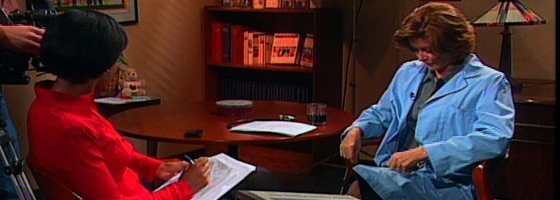An executive media training client called me up a few weeks ago about an interview she was asked to do on the late evening news. We chatted about the topic for a few minutes. It’s somewhat controversial, but she’s been interviewed on this topic before, so I wasn’t worried.
I spoke to her after the interview and asked how everything went. She said, “I did fine, but they tricked me!”
“How did they trick you?” I asked.
“They weren’t just interviewing me. It was a debate. I represented one side and an attorney represented the other. And I didn’t find that out until I was walking onto their set– right before we went live.”
I smiled and said, “I have no doubt that you did well in that situation.” (She’s a formidable businesswoman with a quick mind.)
“I did. I tore that attorney to shreds. But that’s not the point,” she said.
“Actually it is. You know when you agree to be interviewed that anything can and probably will happen. You did your due diligence. You asked questions ahead of time. You knew what you were going to say. That’s all you can do. The rest is out of your control. If you want free publicity on the news, you have to expect the unexpected.”
Rolling With the Punches
One of the first things that I tell my clients is that you cannot micromanage/control every aspect of an interview! (You can control your messaging, which is a topic that I have written about before.) But in terms of the overall content, spin and direction of an interview—at least in terms of the questions asked–reporters and anchors have “hand” to borrow a term from a Seinfeld episode.
As such, if you are unable or unwilling to give up control and roll with the punches, media interviews are not for you.
Fairness
Is it unfair when reporters misrepresent why they’re interviewing you? Absolutely. Is it wrong of them not to warn you if they’re going to play you off of someone else, especially if you’re being interviewed live? Yes. Are chances good that this will happen to you? Yes. Chances are good that you will be “lied” to in some way, shape or form.
For example, some reporters may not tell you the entire truth about the story they’re doing until you’re sitting in the chair with the camera rolling. Most often though, reporters will omit a detail about the interview as opposed to misrepresenting why they’re interviewing you. (It’s sort of like a white lie versus a bald-faced one.)
But you can’t and shouldn’t get angry about that. After all, you’re receiving free publicity when you do an interview, so you have to expect that the interviewer may throw some tricky questions your way. If you’ve gone through an executive media training program– and you’ve done your homework–you should be able to handle them.
If you can’t handle a curveball being thrown at you—and you want to be seen as a subject matter expert in your field—you really should get some executive media training. As I frequently say, it is some of the best money you’ll ever spend if being in the media spotlight is your goal.

